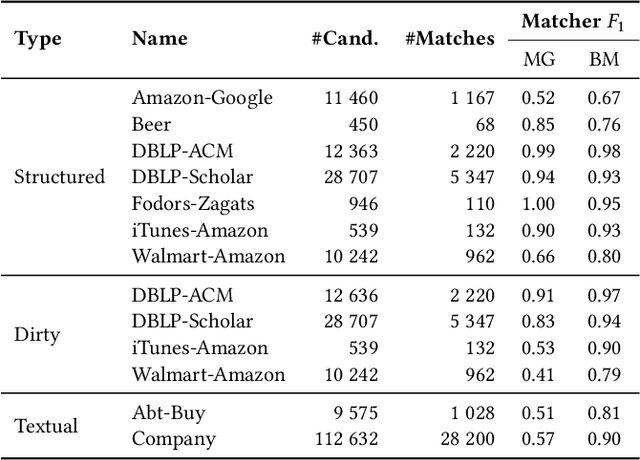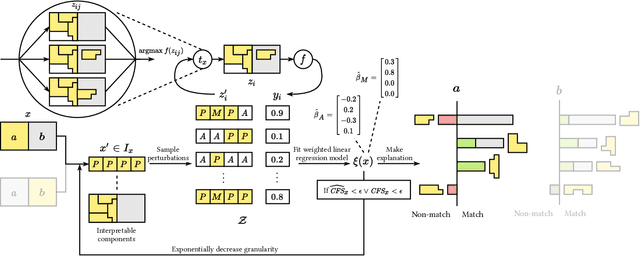LEMON: Explainable Entity Matching
Paper and Code
Oct 01, 2021



State-of-the-art entity matching (EM) methods are hard to interpret, and there is significant value in bringing explainable AI to EM. Unfortunately, most popular explainability methods do not work well out of the box for EM and need adaptation. In this paper, we identify three challenges of applying local post hoc feature attribution methods to entity matching: cross-record interaction effects, non-match explanations, and variation in sensitivity. We propose our novel model-agnostic and schema-flexible method LEMON that addresses all three challenges by (i) producing dual explanations to avoid cross-record interaction effects, (ii) introducing the novel concept of attribution potential to explain how two records could have matched, and (iii) automatically choosing explanation granularity to match the sensitivity of the matcher and record pair in question. Experiments on public datasets demonstrate that the proposed method is more faithful to the matcher and does a better job of helping users understand the decision boundary of the matcher than previous work. Furthermore, user studies show that the rate at which human subjects can construct counterfactual examples after seeing an explanation from our proposed method increases from 54% to 64% for matches and from 15% to 49% for non-matches compared to explanations from a standard adaptation of LIME.
 Add to Chrome
Add to Chrome Add to Firefox
Add to Firefox Add to Edge
Add to Edge